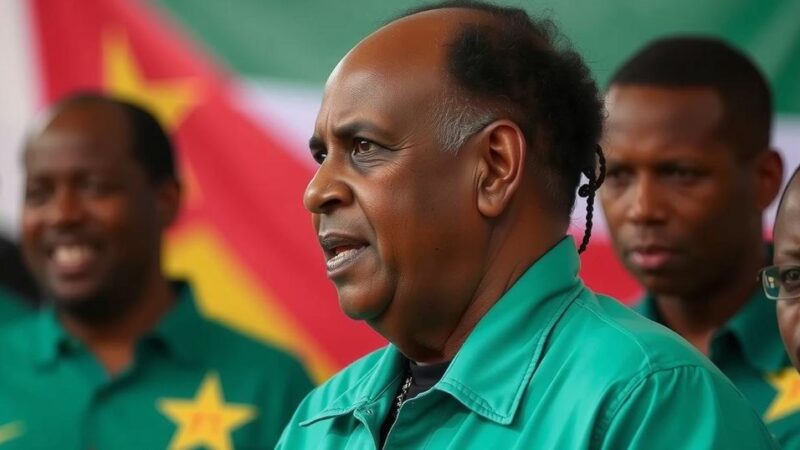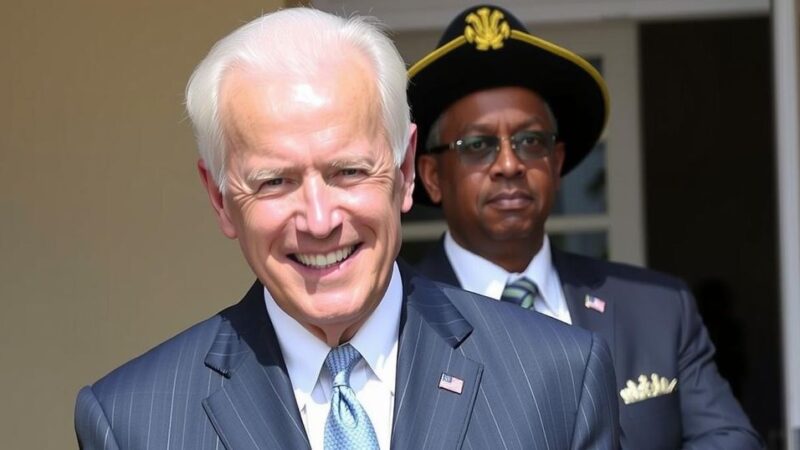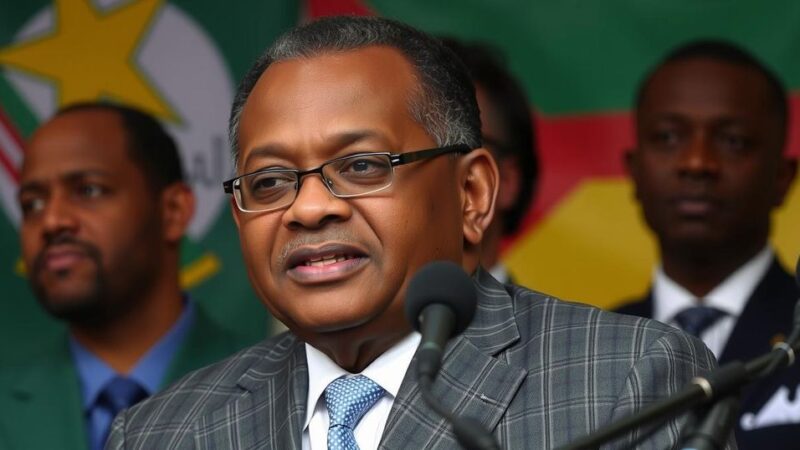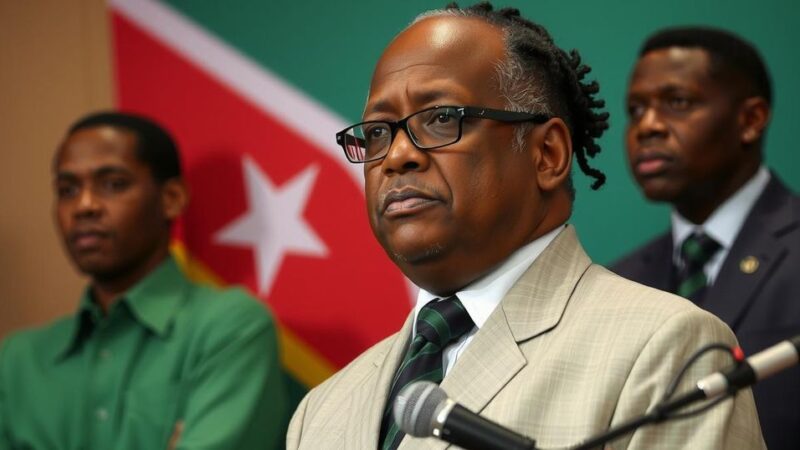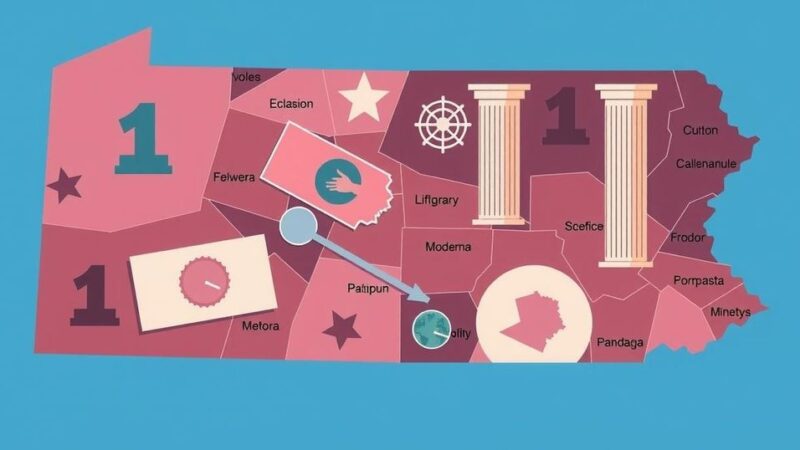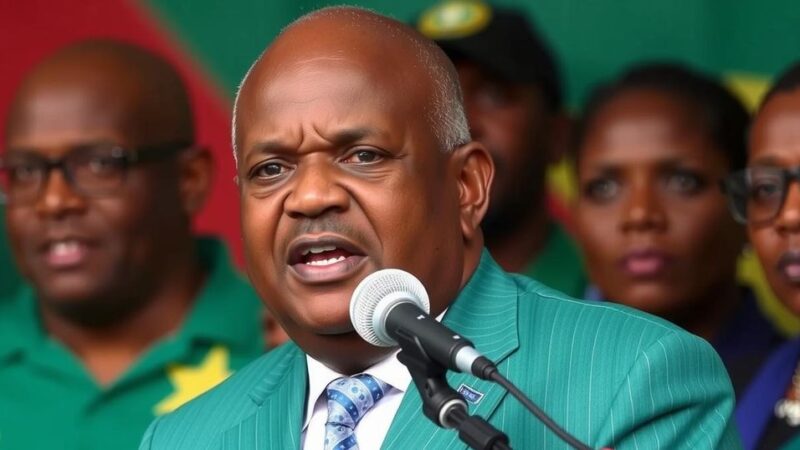Yamandú Orsi, a leftist candidate from the Broad Front coalition, won a narrow victory in Uruguay’s presidential runoff, defeating the conservative candidate Álvaro Delgado. The election highlights a global trend of anti-incumbent sentiment. Orsi pledges targeted reforms to stimulate the economy and unite the country amidst growing public dissatisfaction with post-pandemic challenges.
In a closely contested runoff election held on Sunday, leftist candidate Yamandú Orsi claimed victory against the ruling conservative coalition in Uruguay. This election is emblematic of a global shift away from incumbent parties amid a year characterized by transformative electoral results. Álvaro Delgado, the centre-right candidate, conceded, stating, “With sadness, but without guilt, we can congratulate the winner.”
Yamandú Orsi, who served as a history teacher and two-time mayor, delivered an inspiring address to supporters in Montevideo, announcing, “The nation of liberty, equality and fraternity has triumphed once more.” He recognized the narrow victory margin and expressed his intent to unite all Uruguayans, assuring, “We will need their help to build a better Uruguay.” With almost all votes tallied, Orsi received over 49% of the vote, while Delgado garnered 46%. Notably, voter participation reached 90%, reflecting Uruguay’s mandatory voting laws.
Despite challenges with younger voter engagement, the campaign season featured moderate approaches compared to more populist trends in neighboring countries. Prior to the election, polls indicated a potential tie, suggesting a significant contest. Outgoing President Luis Lacalle Pou, ineligible for consecutive terms, acknowledged the result on social media, extending congratulations to Orsi for his electoral win.
Orsi’s victory resonates with increasing public discontent regarding economic difficulties post-pandemic, which have fueled anti-incumbent sentiments globally. His agenda is not radical and closely mirrors the policies of the Broad Front coalition that previously governed from 2005 to 2020. Under this administration, Uruguay experienced economic expansion and progressive reforms, including the legalization of same-sex marriage and cannabis.
During his campaign, Orsi proposed targeted initiatives such as tax incentives to stimulate investment, revitalization of agriculture, and modest adjustments to social security. His government is anticipated to examine a trade agreement with China, given its impact on the Mercosur trading bloc, and seek a balance amidst union demands. Supporters like nurse Yeny Varone expressed hope for better opportunities under Orsi’s leadership.
Delgado, advocating for the continuity of Lacalle Pou’s pro-business policies, pointed to an expected economic growth of 3.2% in 2024. However, mounting frustrations regarding stagnant wages and increasing crime ultimately weakened his appeal, leading to Orsi’s success. In his victory speech, Orsi emphasized a commitment to dialogue and nation-building, with his presidential term slated to commence on March 1, 2025.
The recent presidential election in Uruguay represents a significant political shift in a country where incumbent parties have faced increasing scrutiny and opposition. A backdrop of economic challenges stemming from the COVID-19 pandemic has contributed to public disenchantment with existing governance. This election reflects broader trends in Latin America and beyond, where electoral outcomes have increasingly favored left-leaning parties as citizens demand change. Orsi’s victory is particularly noteworthy given the enduring stability and progressive reforms achieved by past administrations, setting the stage for renewed discussions surrounding economic policy and social justice in Uruguay.
Yamandú Orsi’s election as Uruguay’s president signifies a notable shift in political dynamics within the country, mirroring a global trend of increasing opposition to incumbent governments. Orsi’s moderate, inclusive platform aims to address economic challenges while enhancing social welfare. With strong voter turnout underscoring public interest in the electoral process, Orsi’s upcoming administration is poised to navigate complex economic and social reforms, reflecting the citizens’ desire for a united and equitable Uruguay.
Original Source: indianexpress.com


